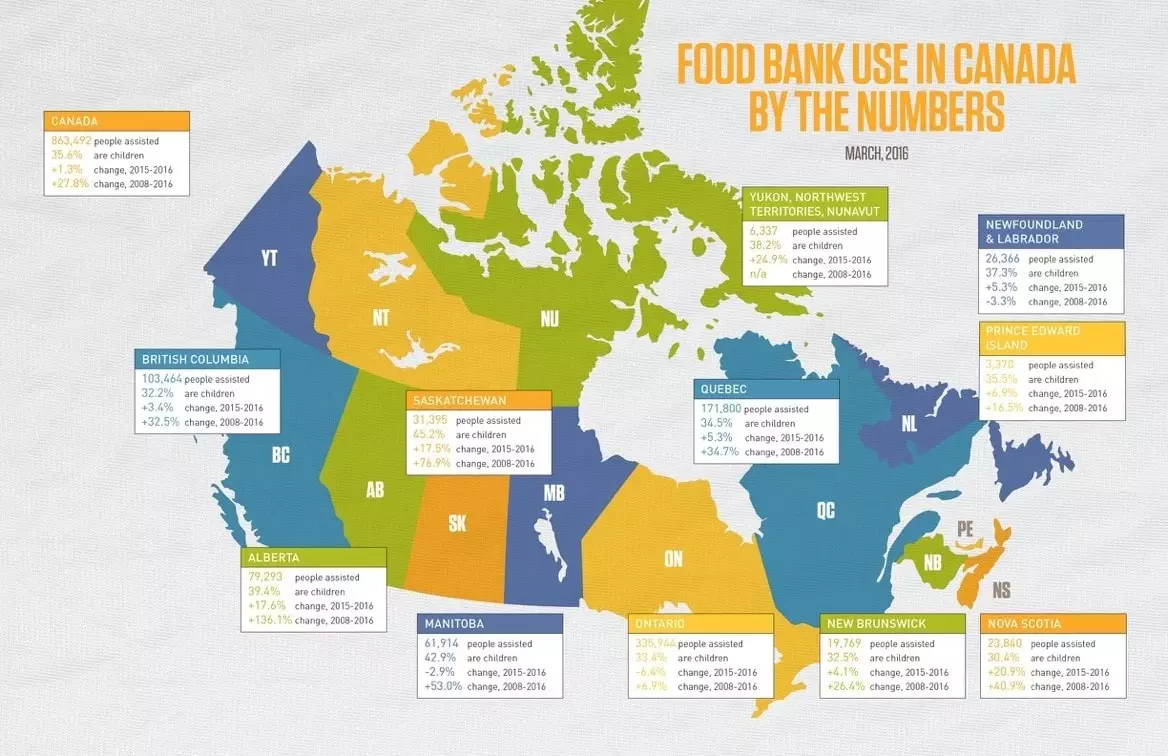Each year, Food Banks Canada releases their annual Hunger Count report. The report outlines data on food bank usage across the country based on the amount of users in March of every year.
Food insecurity is defined by Food Banks Canada as a person or family that:
- Cannot afford enough food;
- Eats suboptimal food because they cannot afford better; or
- Skips meals because they are unable to purchased enough food.
The Hunger Count report demonstrates that food bank usage is increasing in most provinces and the territories each year. In fact, since 2008 food bank usage has increased by 28%.
https://youtu.be/h7rDaKB7Tio
According to the report, food bank users in 2016 came from a variety of backgrounds and living situations. For example:
- 66% of users pay market level rent
- 20% of users live in social housing
- 8% of users own their own home
- 5% of users are homeless
- 155,756 people helped in rural Canada
- 20,657 people helped in Northern Canada
The report demonstrates that to alleviate hunger, changes must be made to a wide range of systems including housing, disability benefits, affordable child care, access to sustainable jobs, employment benefits and restructured tax benefits.
The following are some shocking statistics that stood out in the report:
- In March 2016 863,492 people use food banks on a monthly basis across Canada
- 36% of these users are children and youth
- Most prominent was the 17% increase in food bank usage in Alberta, Saskatchewan and Nova Scotia
- 13% of people using food banks are immigrants and refugees
 Photo Credit: Food Banks Canada
Photo Credit: Food Banks Canada
The Hunger Count acknowledges that for change to occur there must be measureable outcomes enshrined in legislation and accompanied by adequate funding.
At CWP, we believe policy changes to poverty and food insecurity must be considered through a human rights framework. Using a rights based approach will promote dignity through and equality for all people in the country. This approach acknowledges the unique challenges experienced by First Nations, Inuit and Metis individuals and how these barriers to food security can be overcome in Northern Canada.
It is time to recognize that being food insecure is unjust. It is unfair that millions of people in Canada suffer to put food of their table every day and that children are not all given an equal start in life. The question is simple: do we continue down a path where people rely on Band-Aid solutions to survive or do we hold governments accountable to protect the rights of their people?
To learn more about the annual Hunger Count, click here.
Claudia Langevin is a Placement Student at CWP in the Carleton Bachelor of Social Work program.

